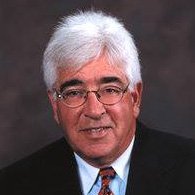The Big Squeeze
August 5, 2012

My last two blog posts outlined why, in my opinion, it is important to accumulate Yelp reviews. These posts generated more feedback than anything I’ve ever written. Numerous dentists took the time to email me or call me about their negative experience with Yelp. I was referred to the Dentaltown message board and read over thirty negative stories from unhappy dentists describing their history with Yelp.
The common thread is that these dentists believe that Yelp manipulates reviews. They say that a practice will have a number of legitimately obtained positive patient reviews disappear fairly quickly – leaving only a negative one visible – when the doctor chooses not to advertise on Yelp. I spoke to Yelp representatives who swear up and down that there is a firewall between these two aspects. They claim that Yelp is a public company that would be severely penalized by these actions. In fact, Yelp may be protected by law. In a class action lawsuit, Yelp was accused of offering to remove or downgrade negative reviews if the business in question purchased advertisements on the site. According to a Wall Street Journal article on October 28, 2011, the law suit was dropped when the judge in the case ruled that Yelp’s choices for which user-generated reviews to display is protected by the Communication Decency Act, a 1996 law that shields websites from being sued for publishing user-generated content. I would encourage you to take the time to read a very thoughtful article on the credibility of online reviews authored by my good friend Isaac Gorin, a principal at Web Marketing for Dentists.
In their defense, Yelp claims that they use a sophisticated filtering mechanism that tries to distinguish between fake reviews and legitimate reviews. On further questioning, it seems that Yelp defines a review as being suspect when one of your patients writes a nice review but then rarely ever writes another review for any other business on Yelp. So the best review to get is from a frequent Yelp reviewer, perhaps someone who actually found your office on Yelp – had a good experience in your office – and then writes a review. Yelp’s position of course is that more patients will find you on Yelp if you advertise on Yelp. Is this the classic example of catch 22?
If you think that Yelp is rewarding its advertisers, I believe that because of the Apple partnership, you have to seriously think about playing “the game” with Yelp and consider an advertising campaign in order to protect your reviews. In actuality, I think that advertising on Yelp could be a pretty good deal. The cost is reasonable, and if you do advertise with them, you have the benefit of appearing above all the reviews, and other advertising dentists do not appear on your page when your reviews are opened.
Usually when evaluating any marketing expense, the consideration is whether or not there is an adequate return on investment. So strictly from that perspective, you would have to decide if Yelp can deliver the number of promised impressions – and then whether or not there is a good enough click through rate. But in this instance, because of the unquestioned strong connection between numerous quality reviews and high ranking, the positive return on investment is secondary to the protection of your hard earned patient reviews on a search engine that will be increasingly important and relevant. Whether you think this is fair game or not is inconsequential. I’d love to know what Apple thinks about all of this!
In my next post, I’d like to analyze why so many dentists have this negative impression of Yelp and how that might be changed.
No Comments
No comments yet.
RSS feed for comments on this post.
Sorry, the comment form is closed at this time.

